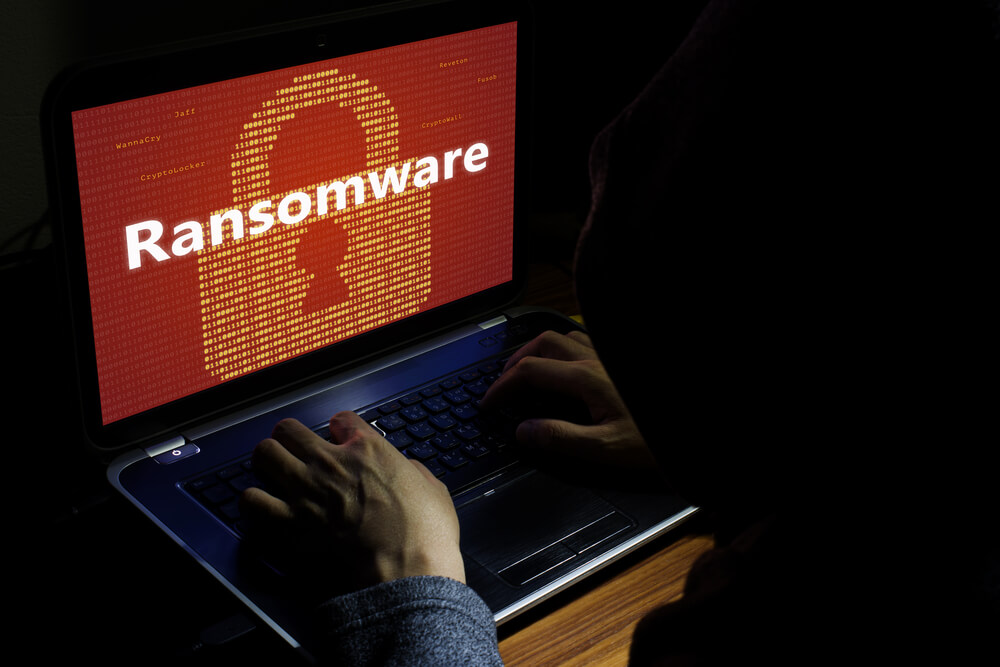Ransomware is an insidious form of malware that locks your data and networks and forces you to pay a fee to unlock it. Dental clinics are not immune to ransomware attacks; in fact, they are prime targets.
In 2021, an independent survey of IT and cybersecurity professionals found that 80% of the organizations partaking in the survey suffered a ransomware attack, and 60% had no other choice but to pay the ransom.
Here is what you need to know about ransomware and how to protect your clinic.
What Is Ransomware?
 Ransomware is a type of malware that invades your computer and data systems. It hides in the shadows, secretly working in the background to take over your systems and data and encrypt them.
Ransomware is a type of malware that invades your computer and data systems. It hides in the shadows, secretly working in the background to take over your systems and data and encrypt them.
Once it fully encrypts your data, there is no way for you to get it back. The attackers will usually lock your screen and ask for a payment, ranging from a few hundred dollars to thousands of dollars, depending on how much they think you can afford to pay.
Why You Should Never Pay the Ransom
While many business owners may feel the need to pay what the attackers demand when there’s a data breach, that’s the wrong course of action. How can you rely on the goodwill of the hackers and trust that they will follow through on their word? You can’t. Many businesses have paid the ransom, only for the hackers to disappear and never unlock the data.
Besides, paying ransoms only serves to encourage the hackers to strike again. The best way to protect yourself from ransomware is to take preemptive measures to secure your system. That way, you can detect a data breach as it happens and stop the hackers in their tracks.
5 Common Ransomware Misconceptions
Many business owners misunderstand the ransomware threat or fail to take it seriously. That’s due mainly to the following five myths surrounding ransomware.
#1. Paying the Ransom Will Resolve the Issue
There’s no guarantee that paying the ransom will help you get your data back. Many hackers don’t care what happens after you pay them – it’s not like you can leave an online review saying they didn’t follow their word. Besides, even if they release your data, you’re still left vulnerable to another attack if you don’t strengthen your system.
#2. A Firewall and Antivirus Are Enough Protection
Antivirus protection and a firewall are both essential components in the fight against ransomware. However, they’re not enough. Relying solely on your antivirus and firewall to protect you leaves your clinic vulnerable.
There are a few reasons why that is. First, all organizations are vulnerable to human error. An employee clicking on a phishing link in an email can unknowingly bring malware into the organization.
Furthermore, it’s critical to update antivirus and firewall software. Antivirus software must also constantly scan the entire system to ensure the malware isn’t operating.
Finally, backups are just as important. Firewalls and antivirus programs have different degrees of effectiveness. They’re not always 100% effective, so you should have a plan B in place in case they fail.
Backups allow you to restore your data. They remove the necessity of paying the ransom; having backups gives you another option. However, it’s critical to store your backups offline. Good ransomware programs can infect any backups you made that are still connected to the cloud.
#3. IT Can Easily Decrypt Data
Your IT guy might be great, but even the best IT professionals will be at a loss if there is a data breach and the ransomware works as intended. Nobody is immune – both governments and private companies have forked over hundreds of millions of dollars a year in ransomware payouts, according to the White House. In fact, governments pay 10x more than private companies.
Sometimes, if the ransomware has apparent problems with the coding and cryptography, it may be possible to decrypt it. However, ransomware usually has a decryption key that is separate from the encryption key. The hackers store this decryption key on a remote server, making it virtually impossible to decrypt the data yourself, regardless of how good you are at IT.
Unless you have a backup, your data may be gone forever.
#4. My Company’s Data Isn’t Valuable
Many companies think they won’t be the target of a ransomware attack. After all, your dental clinic is small, and you may have few employees. However, the reality is that ransomware hackers target small and large businesses alike.
If you store any sort of valuable patient data, you are at risk for an attack. Let’s say you keep your patients’ dates of birth and physical addresses, for example. There are a lot of things attackers can do with that information, including performing identity theft.
Besides, if your patients discover that hackers stole their sensitive dental records, it will ruin your reputation. That’s all the more true if you can’t recover their records, x-rays, and the like.
#5. Ransomware Only Impacts the Infected Device
Ransomware can be pretty intelligent. Many people think that it can’t spread from one device to another. Just like computer worms, ransomware can spread across an entire computer network, even using Wi-Fi to jump from one device to another. Not only that, but if your backups are connected to the grid in any way, they are vulnerable.
If you use Google Drive or Dropbox to back up your data, it will synchronize automatically when the ransomware infects and locks your data, making those backups useless. It’s best to create multiple backup copies and store them offline, such as on a hard drive.
However, you must keep the hard drives in a secure location and not rely on them exclusively. Since physical hard drives can get corrupted, such as in the case of a fire or flood, you also need cloud backups.
Safeguard Your Dental Practice
These are the most common myths surrounding ransomware. Unfortunately, ransomware can hit dental clinics of any size at any time, without warning. Therefore, any delay in securing your network increases the risk of being a ransomware victim.
If you believe you could fall victim to a ransomware attack, start protecting your systems and patients today with the built-in security you need. Erickson Dental Technologies can ensure that you and your patients receive the security and confidentiality you deserve.
Contact us today to speak with one of our experts about safeguarding your dental practice.


